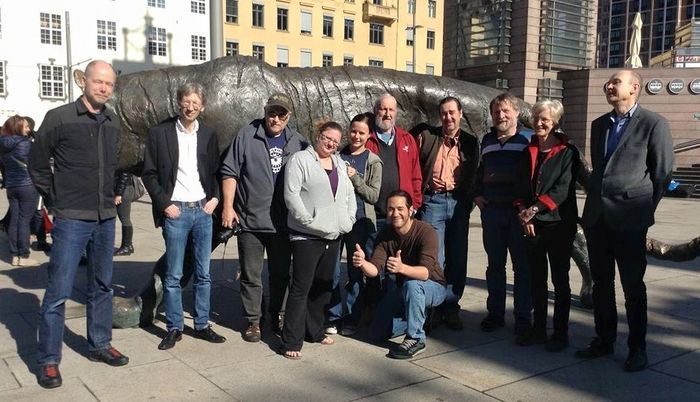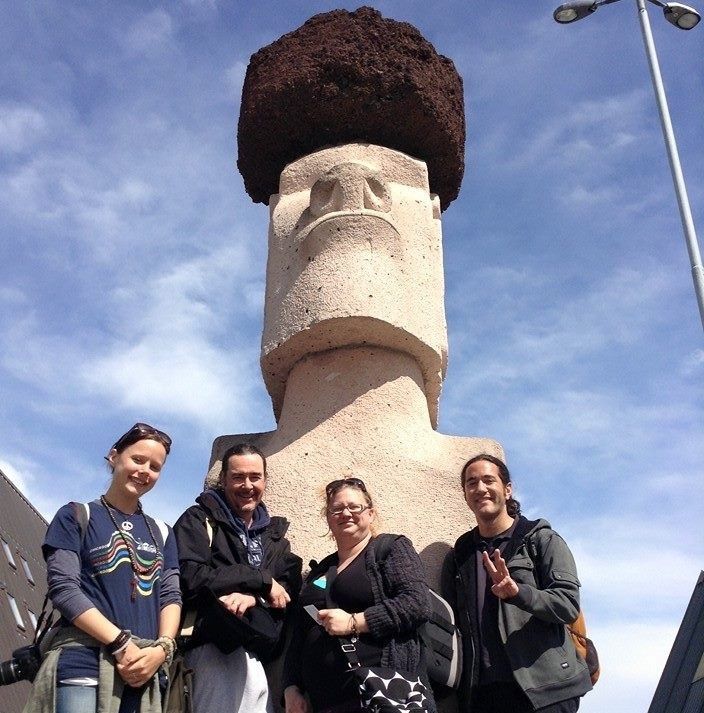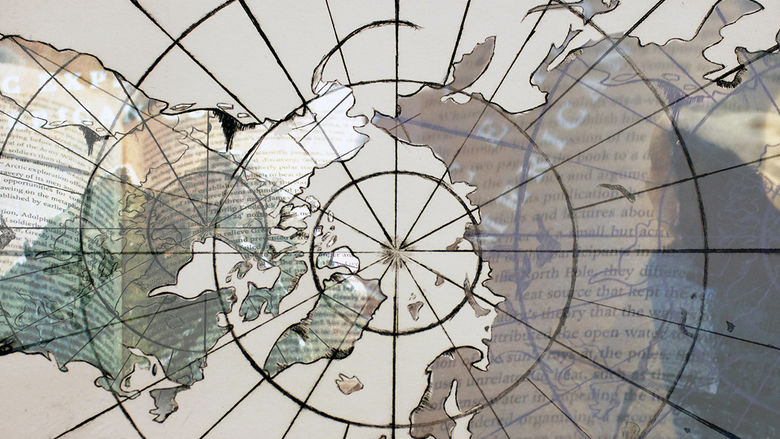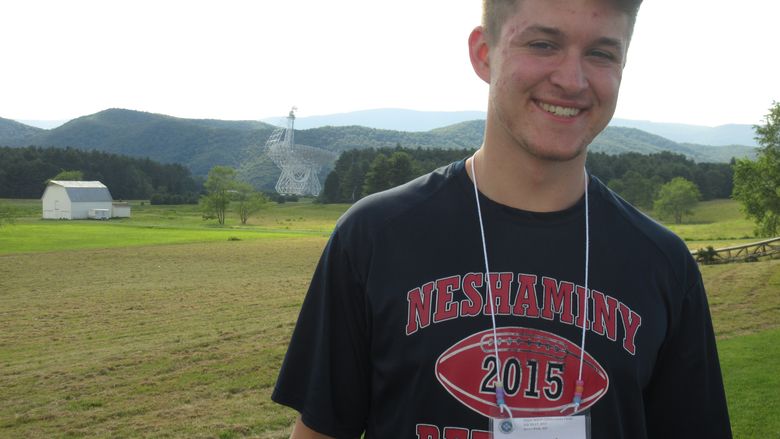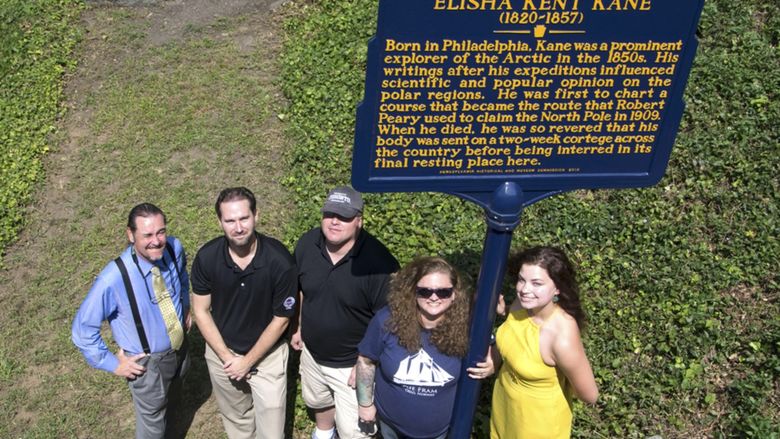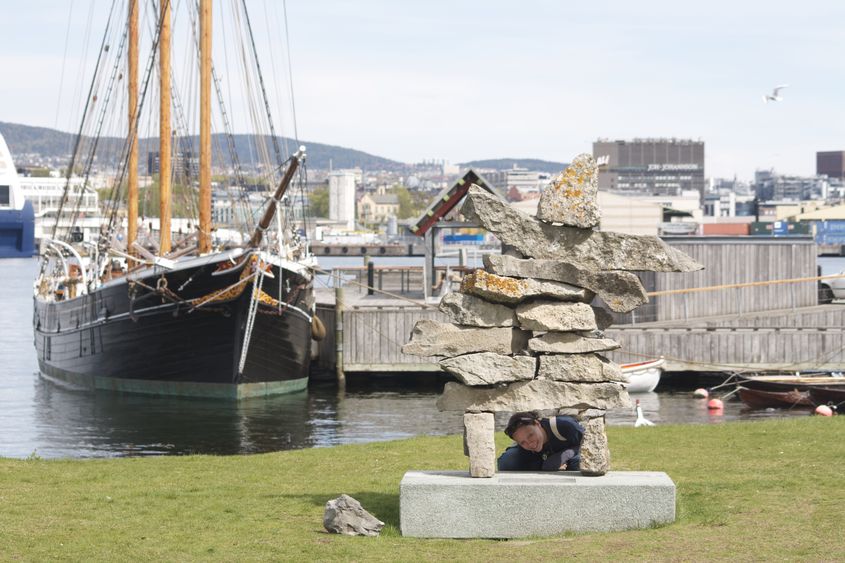
Abington student Amanda Lockerby peeks at Oslo through a stone cairn, known as an inuksuk.
A trio of Penn State Abington students joined a team of international researchers in Norway this summer, documenting the early exploration of the world's northernmost archipelago. A grant awarded to Abington's resident polar explorer and professor of anthropology, P.J. Capelotti, funded the experience.
Jacqueline Lanning, Amanda Lockerby, and Alejandro Cruz presented their research to historians, polar explorers, and social scientists in the capital city of Oslo. They illuminated their findings on Franz Josef Land using the lenses of history, art, film, and photography.
"This was a fantastic opportunity to do some primary research for a region where very few people know the history of its geographic place names," Cruz, a psychology major, said after the conference.
The senior delved into why explorer Evelyn Baldwin named a bay in the islands for writer Rudolf Kersting. He found evidence of a friendship between the men cataloged in an Oslo museum's archives but needed to read the century-old letter to confirm his theory.
"This was a fantastic opportunity to do some primary research for a region where very few people know the history of its geographic place names," Alejandro Cruz, senior
"Dr. Capelotti contacted the archivist who promptly scanned and emailed us the letter," he said. "He told me that scanning and emailing an original document never happens."
Cruz included the scan in his presentation, solving one of the many mysteries of the icy lands. He was thrilled that the team of scholars, with whom Capelotti has worked for years, treated the students as peers, thus making them more confident in discussing their research.
Lockerby, a psychology major, said the trip was educational beyond the traditional academic sense.
"Last I checked, you weren’t supposed to discuss politics or religion with people you hardly know. These international researchers discussed all of those topics," she said. "They yearned for information, which made me yearn for it as well."
The Norway journey, which unofficially began when the three students met in an anthropology course several semesters ago, has led them to consider new options post-graduation. Cruz said he would like to tackle more polar research while Lockerby considers graduate school in Europe.
Art major Lanning sees influences from the region surfacing in her work, and she hopes to visit the islands as an artist and archeologist.
"I find the Arctic to be the most beautiful place on Earth: the colors, wildlife, and even the remains and memories of the men who explored and discovered Franz Josef Land," the senior, who also minors in anthropology, said.
"I find the Arctic to be the most beautiful place on Earth: the colors, wildlife, and even the remains and memories of the men who explored and discovered Franz Josef Land." Jacqueline Lanning, senior
Capelotti applied for the grant that funded the project with the specific intent of taking several high-achieving students to Oslo for research and cultural immersion.
“Oslo is one of the most expensive cities in the world, so this is a unique opportunity for these students to explore a city and a country that they might never have experienced otherwise,” he said.
A dozen began the process last fall, and he said three "survived" the stringent requirements for the conference, which related to toponymic (geographic place names) research as it applied to three American explorations of the islands between 1898 and 1905.
Capelotti is a principal investigator with the National Science Foundation Office of Polar Programs, which awarded him a $50,000 grant for the Norway conference. It was the initial step leading to a comprehensive international project on the historical place names of Franz Josef Land.
